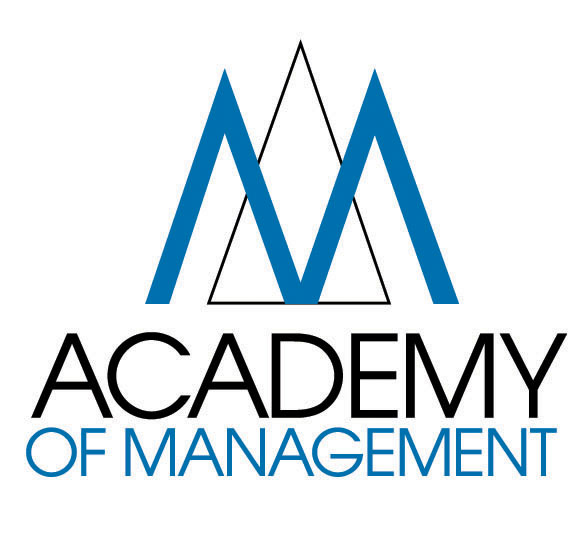
In an effort to accelerate new insights in how organizations gain authority and mandates for action, Prof. Anita McGahan, the Academy of Management’s 2015 Program Chair and member of the MacArthur Foundation Research Network on Opening Governance announced recently the Academy’s annual meeting will focus on Opening Governance. In particular, the meeting will consider how digital technologies that expand the information and expertise available to organizational leaders improves the effectiveness and creativity of their organizations in how they govern valuable resources.
Founded in 1936, the Academy of Management is a member-driven global community comprising nearly 20,000 members and spans 115 countries. Governed by a volunteer Board of Governors, the Academy seeks to inspire and enable a better world through scholarship and teaching about management and organizations, and has the mission of building a vibrant and supportive community of scholars by markedly expanding opportunities to connect and explore ideas. The Academy is organized along 25 divisions and interest groups, ranging from Entrepreneurship and Healthcare Management to Organizational Behavior and Technology and Innovation Management.
The Academy’s Annual Meeting – the signature opportunity for members to connect and explore ideas – brings together more than 10,000 students, academics, scholars and professionals in the scholarly management and organization space. The choice for next year’s theme will enable perhaps the largest scale conversation of Opening Governance in the movement’s existence. The assembled members will take part in impact-focused discussions on questions like “How and when should managers open governance practices to involvement by engaged stakeholders?” and “How can organizations work more effectively with governmental agencies and foundations to create value?”

Read the full-text of McGahan’s announcement below.
The theme of the 2015 conference, Opening Governance, invites members to consider opportunities to improve the effectiveness and creativity of organizations by restructuring systems at the highest organizational levels. The term ‘governance’ refers to leadership systems, managerial control protocols, property rights, decision rights, and other practices that give organizations their authority and mandates for action. Opening governance involves revisiting these practices especially in light of big data, crowdsourcing, and other emerging digital technologies that expand the information and expertise available to organizational leaders. How and when should managers open governance practices to involvement by engaged stakeholders? What advances and problems arise from transparency in decision making? The Opening Governance theme also points to fundamental questions about how various types of organization forms compete to govern valuable resources. What are the tradeoffs associated with pursuing a specific value-creation opportunity under the governance structure of an investor-owned corporation as opposed to a privately held corporation, a B Corporation, or even a licensing arrangement or non-profit organization? How can organizations work more effectively with governmental agencies and foundations to create value?
Organizations operating under all kinds of governance structures - including companies, non-governmental organizations, hospitals, schools, and governments – will be pressed over the next generation to make better decisions; respond more quickly to information; coordinate better; disseminate important information faster; waste less; operate more cleanly and fairly; cultivate trust through transparency; and mobilize expertise more efficiently. Digital analytics are already generating new types of insights about personal and organizational behavior. As a result, questions about the control and ownership of behavioral data will become acute. Innovation in systems of governance over massive amounts of this machine-enabled data will be central to taking up the opportunity for innovating at the levels required to address the biggest problems of our time - such as climate change and the fragility of financial systems. Organizations will be compelled to confront the interests of stakeholders in their most important information assets and, at the same time, only be able to develop and use these assets through collaboration and partnership.
The opportunities for new approaches to value creation are also extensive. Important new resources are available at scale for managing more effectively in the face of large problems: digitized information, data (big and small), communication technologies, new analytical techniques, extensive networks of relationships, and knowledge of all sorts. We know relatively less about effective mechanisms for deploying these resources effectively, and we know little about management techniques for conceptualizing and designing resources to address such problems as the informal economy or massive migrations of people into the world’s cities.
The challenge of governing across organizational boundaries is as complex as governing within organizations. We must develop systems that put the right organizations at the forefront of problem solving at the right times. Governmental bodies must have the intelligence and governance structures to regulate private organizations while at the same encouraging rather than discouraging decentralized initiative to solve pressing problems. Organizations of all forms must work together flexibly, such as when pharmaceutical companies distribute essential medicines to non-governmental agencies through public hospitals in settings of poverty. Responding to public emergencies and innovation opportunities will become a hallmark of effective cross-organization management in the 21st century.
What will opening governance involve as a practical matter? It may involve new functions for organizations, such as creating innovation platforms and sponsoring the creation of digital standards. It also may create opportunities for new types of public-private collaboration, such as when multilateral agencies subcontract critical health-delivery and educational functions to private companies. For private organizations, it may involve pooling knowledge to create new datasets and then competing over the opportunities created by the data. New business models may emerge, such as when companies license technology to rivals, or when companies seek to create networks of entrepreneurial actors that compete for control rights over information. Companies may also benefit from differences in information rules across jurisdictional boundaries, such as when companies test new products in one country and then introduce them in other countries. As these practices disseminate, Boards of Directors will need to become more engaged in their firms’ information technology practices. NGOs, health-care providers, educators and governmental actors may collaborate to exchange data and commit to mutual collaboration in the face of system failures. The implications are almost endless - too extensive to list.
Opening Governance is an invitation to think broadly and creatively about the ways in which organizations take action to address the most important management problems and opportunities of our time. For our meeting in Vancouver, Opening Governance raises questions that AOM members of various divisions and interest groups may tackle from many different perspectives. Thank you for considering the invitation and for engaging on this theme. Each of the nearly 19,000 members of our Academy has insights that are welcome at the AOM’s 75th meeting. It will be great to see you there.
Sincerely, Anita M McGahan 2015 Program Chair

